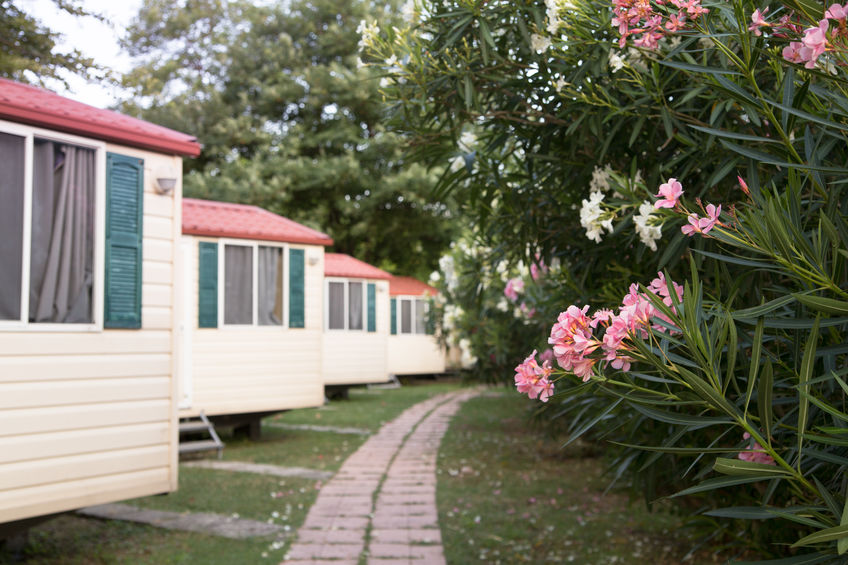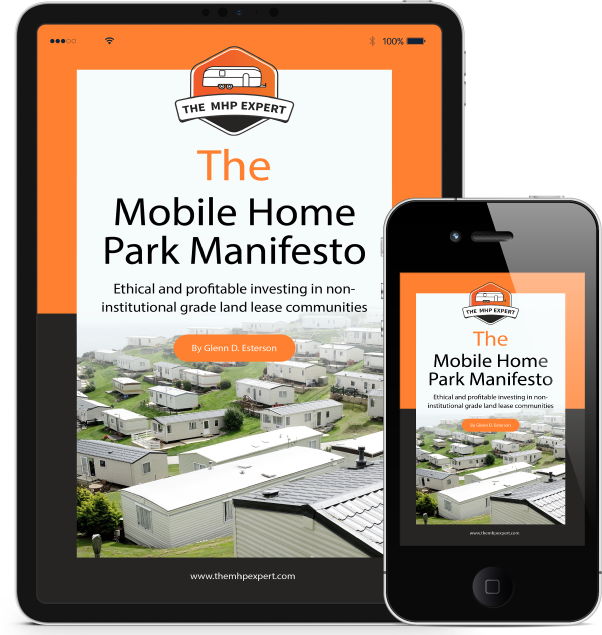Welcome to the best kept secret in real estate investment: mobile home parks. Savvy investors are just now waking up to the unique investment opportunities of mobile home parks: the high demand, the steady stream of cash flow, the reliable tenancy. But as more MHP gurus, investor universities, and purveyors of investment snake oil crop up, there’s a lot of noise and misinformation about how to make sound investments in mobile home parks.
If you have experience with real estate investment, you’ve already got a leg up, and the process will look familiar. However, there are a number of unique market factors you must learn and prepare for in order to avoid investment risk. With the right team and a disciplined approach, you can capitalize on the right MHP investments and make bank. We’ll show you how, step-by-step.
1. Set Your Goals and Define Your MHP Investment Criteria
This seems like a no-brainer, but without a concrete business plan or investment criteria, you will be hard-pressed to identify the right investments when you’re researching and evaluating properties. With process-oriented goals in mind, define the specific needs and purchase criteria that will inform your mobile home park investments. Determine your ideal property type, locale, lot size, number of units, condition, appreciation potential, and so on. Once you find your niche, evaluating the market will be significantly easier.
2. Team Up with an Mobile Home Park Broker
Many experts will point you to a mentor or advisor to help you fully understand the ins-and-outs of MHP industry. These two roles can be one and the same given the right MHP broker. Typically, investors lean on MHP brokers to give them clarity into their particular market, provide insight into who the sellers are, and liaise with sellers and financial institutions to get investors the best deals. Moreover, many MHP brokers can procure “pocket listings” or “off-market listings” that are not publicly on the market from their own pipeline of sellers, guiding you to the best deals on or off the market.
But the best mobile home park brokers are also proficient investment guides. They prove themselves to be reliable advisors who can leverage firsthand industry experience and knowledge of current market valuation while helping you purchase high-quality parks. These brokers will not only walk you through the every step of financing and purchasing a MHP, but can also supply you with invaluable data-driven advisory services, such as comprehensive build plans, SWOT analyses, and rent comps.
3. Explore the Mobile Home Market and Qualify Properties
You’re now ready to enter the “deal flow” and start looking at the market. Generally, the most accessible option is the internet. Search multiple-listing services to find on-market listings based on your investment criteria, and obtain a list of every qualified mobile home park in your target area. If you have a connection with a broker, you can refer to them for word-of-mouth deals and listed or off-market listings from their sellers.
Once you’ve found a property that matches your investment criteria, you’ll want all the financial information you can obtain. Ask the seller or associated broker for underwriting, P&Ls, rent-roll and any other pertinent information necessary to your evaluation.
4. Reassess Your Investment Plan and Decide on a Financing Method
After you’ve evaluated the property, return to your original goals and investment strategy. Build out an investment plan, compile market research, and analyze your SWOT. (Often, the best brokers can assist you with this part of the process.) Prepare a projected P&L that reflects that plan and any assumptions for the property (such as revenue, costs, and NOI).
Then, determine the financing method. While the most common transactions for mobile home parks are cash deals, some banks might consider loans for MHP deals. If your broker can facilitate a connection with the right bank lender, then this might be a viable option. It’s important to note that bank financing can often take longer than cash closings.
5. Make an Offer and Perform Due Diligence
Once your finances are in order, it’s time to make an offer. This is not unlike most real estate transactions — you submit an offer and come to a mutually accepted agreement with the seller on price and terms; submit the necessary paperwork; and proceed to due diligence.
While the physical due diligence (i.e., understanding the current condition of the physical & financial elements of the mobile home park) is relatively straightforward — review the P&Ls, the bank statements and rent rolls, the tenant leases, check the homes, structures, water lines, gas, electric, septic — the next part is a little trickier. Geography considerations such as land use, zoning, compliance, and development plans for the property and neighborhood are harder to intuit without the expert help, such as an MHP broker who deals in the area.
After all of these steps are completed, it’s time to sign the closing papers!
See How Glenn Esterson Can Help You Buy a Mobile Home Community
The process of buying a mobile home park can be long and tedious, but it’s especially rewarding for the investors who take careful considerations throughout the entire purchasing process. From tip to tail, the purchasing process can be as quick as 30 days, but is typically longer, averaging 60-75 days in most cases.
If you’re interested in purchasing a mobile home park, Glenn Esterson provides the expert guidance and partnership you need to make these complex processes feel simple. He’s been doing this as a broker for more than 18 years and sold 36 mobile home parks in 2018. Whether you’re testing the market or ready to buy, our advisory and brokerage services will help you maximize profits.


